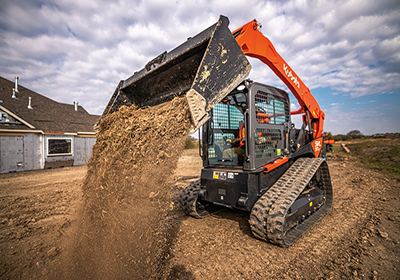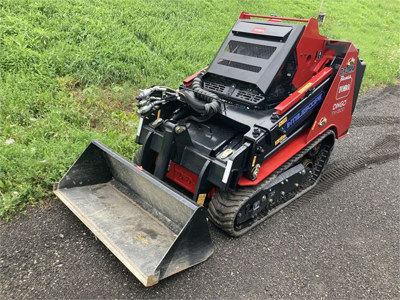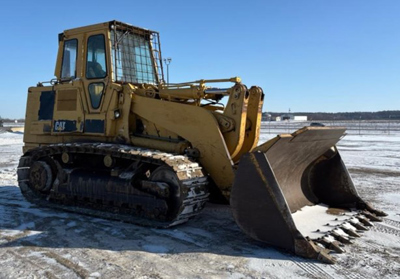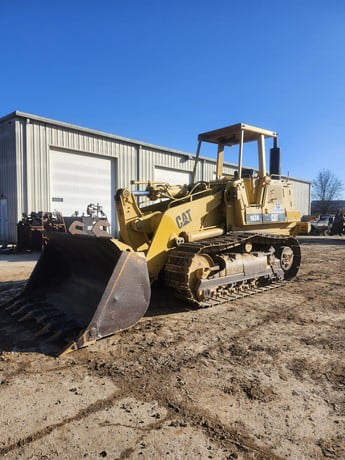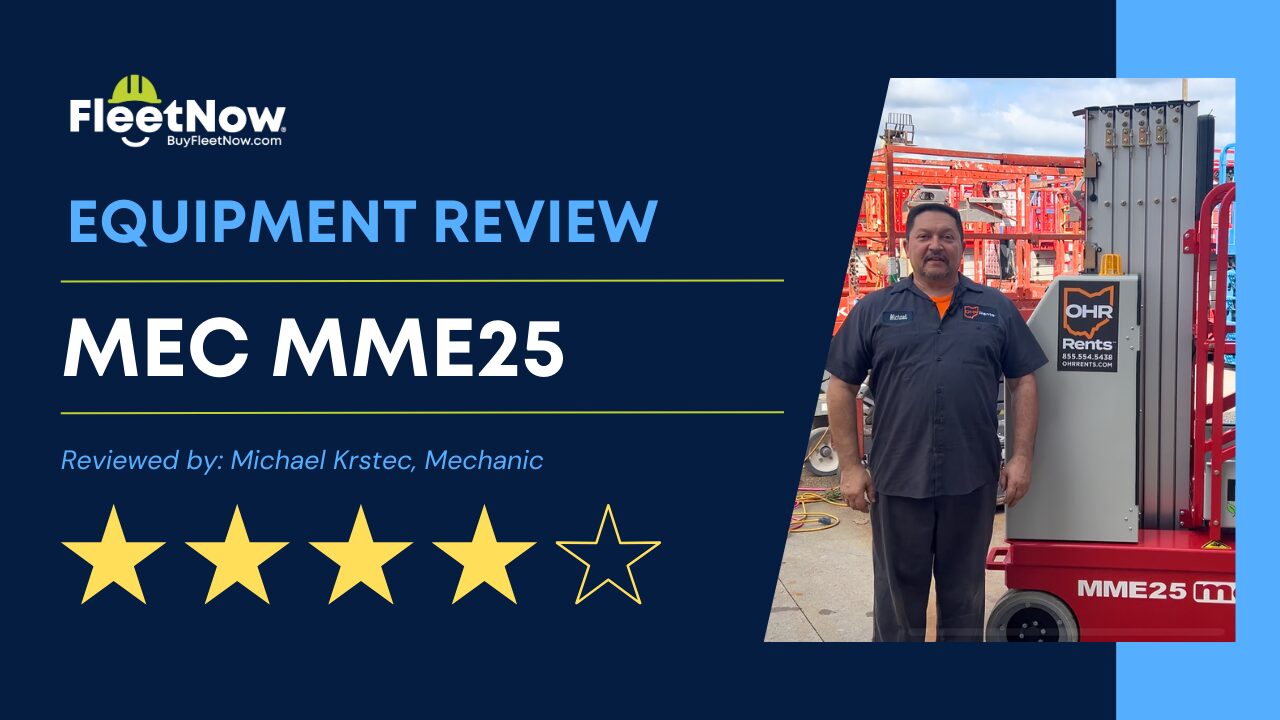What Is a Track Loader?
A track loader is a type of construction equipment used in earthmoving, excavation, and material handling industries. Track loaders are equipped with tracks instead of wheels to provide traction and stability on uneven surfaces. Like a skid steer, a track loader comes with a bucket and has many attachment options! Two main types of track loaders are track loaders and compact track loaders.
What Should I Consider When Buying a Track Loader for Sale?
When shopping for a track loader, consider the following factors to ensure you choose the best machine for your needs:
Size and Capacity: Determine the size and lifting capacity required for your specific tasks. Consider factors like load weight, reach, and height clearance.
Power and Performance: Evaluate the engine power and hydraulic performance of the track loader. Look for models with sufficient horsepower and hydraulic flow to handle your intended applications efficiently.
Track Design and Undercarriage: Examine the track design and undercarriage components for durability and reliability, especially if you’ll be operating in rough terrain or harsh conditions. Consider features like track width, ground clearance, and track tensioning systems.
Attachments and Versatility: Assess the compatibility and availability of attachments to enhance the versatility of the track loader. Look for a machine that can accommodate a wide range of attachments like buckets, grapples, augers, and hydraulic breakers.
Operator Comfort and Safety: Prioritize features that enhance operator comfort and safety, such as ergonomic controls, adjustable seats, and visibility enhancements. Ensure the machine meets safety standards and includes features like ROPS (Roll-Over Protective Structure) and FOPS (Falling Object Protective Structure) for operator protection.
Maintenance and Serviceability: Consider the ease of maintenance and access to service points when selecting a track loader. Look for features like easy-to-access engine compartments, simplified maintenance procedures, and availability of service support from the manufacturer or dealer.
Brand Reputation and Dealer Support: Research the reputation of the manufacturer and dealer for track loaders. Choose a reputable brand known for quality, reliability, and excellent customer service. Evaluate the availability of spare parts, warranty coverage, and after-sales support.
Budget and Financing Options: Determine your budget and explore financing options available for purchasing or leasing a track loader. Compare prices, features, and financing terms from different manufacturers and dealers to find the best value for your investment.
What Are Popular Brands of Track Loaders?
Barko: Highly regarded for their robust and reliable machines.
Bobcat: Renowned for versatility, ease of use, and a wide range of attachments.
Case Construction: Recognized for their robust build, innovative features, and excellent lifting capabilities.
Caterpillar: Known for their durability, advanced technology, and extensive dealer network.
John Deere: Praised for their powerful engines, comfortable operator stations, and reliability.
Kubota: Appreciated for their compact design, fuel efficiency, and user-friendly controls.
How Much Is a Track Loader?
New compact track loaders typically range from $30,000 to $80,000 for a new machine, while used compact track loaders can range from $15,000 to $50,000. New mid-size track loaders range from $50,000 to $150,000, while used ones can range from $25,000 to $100,000. New large track loaders generally start at $100,000 and can exceed $300,000, depending on features and model. Used large track loaders range from $50,000 to $200,000, depending on age, hours, and condition.

What Can You Do with a Track Loader?
A track loader is a versatile piece of equipment capable of performing a wide range of tasks, including earthmoving and excavation, material handling, loading and unloading, grading and leveling, site preparation, demolition, forestry, utility work, and agriculture. Track loaders come equipped with tracks instead of wheels to help navigate difficult terrain. Tack loaders can be equipped with an array of attachments, making them useful in many applications. Coming in many sizes makes this machine an asset to any jobsite it may be needed.
What’s the Difference Between a Track Loader and a Compact Track Loader?
The primary difference between a track loader and a compact track loader is the size and application. Track loaders are larger, more powerful, and designed for heavy-duty earthmoving and material handling. Compact track loaders are known for their ability to operate in tight spaces due to their size. Compact track loaders are also ideal for minimal ground disturbance due to the size of the machine. Both machines have several attachments that they can be equipped with. A track loader tends to have more construction-based attachments while compact track loader is more for landscaping and agricultural settings.
Need a compact track Loader? Check out Compact Track Loaders for Sale on BuyFleetNow.com.
What Is the Difference Between a Skid Steer and a Track Loader?
Skid steer loaders have four wheels and use a skid-steer mechanism for steering. Track loaders have tracks instead of wheels. These tracks provide increased traction and stability in challenging terrain. Track loaders are more common on job sites where traction and stability are essential. Track loaders generally offer high stability, thanks to their lower center of gravity and wider footprint. They tend to also have a higher lifting capacity making a track loader suitable for heavy duty tasks.
How Many Hours Does a Track Loaders Last?
On average, a well-maintained track loader can last for up to 10,000 hours or more. It’s important to follow the manufacturer’s recommended maintenance schedule and keep the machine in good condition to ensure maximum lifespan and performance. With proper care, a track loader can provide years of reliable service, making it a smart investment for any construction business.
Watch CAT Track Loaders at Work
Recent Equipment News
MEC MME25 Review: Specs, Features & Industry Perspective
MEC MME25 Review: Specs, Features & Industry [...]
Construction Equipment Trends 2025: Inside Q1–Q2 Demand & What It Means for You
Table of Contents Top 10 Categories Q1 vs [...]
FleetNow Announces Elijah Dollarhide as 2025 Construct Your Future Scholarship Winner
FleetNow Announces Elijah Dollarhide as Construct Your Future Scholarship [...]

